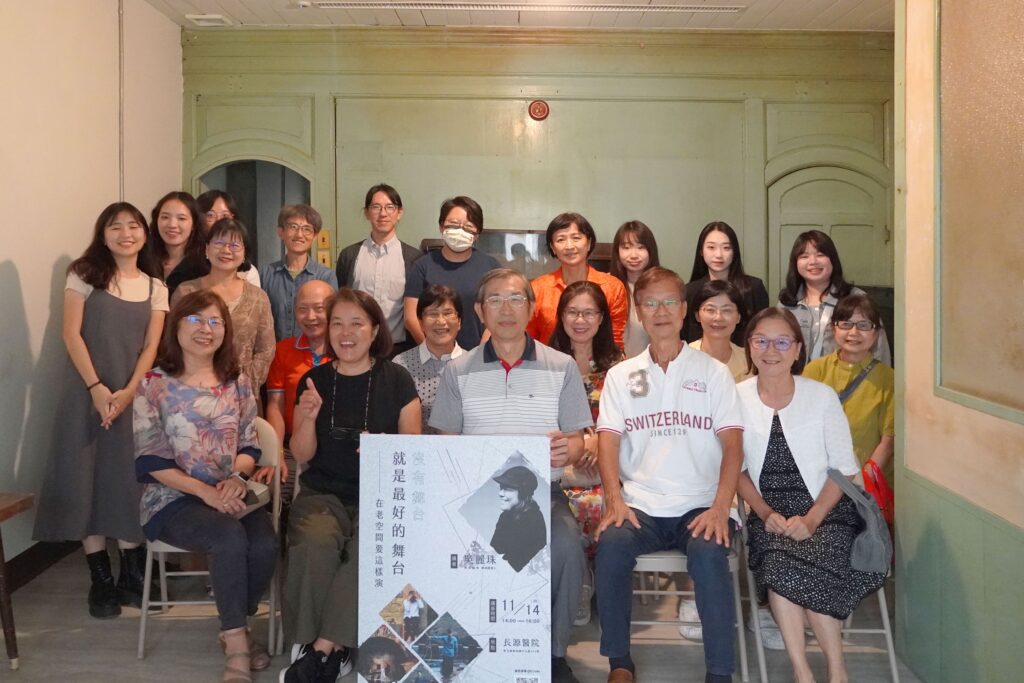No Stage is the Best Stage: When Performing Arts Enter Old House Spaces
Since the “proscenium stage” became the mainstream theater structure in the 17th century, artists have continuously pushed the boundaries of performance within box-shaped spaces, developing diverse theatrical forms with an experimental spirit in contemporary times. Performers, viewers, and space—these three elements constitute the core of performing arts. Therefore, stages need not be confined to grand, imposing theater buildings. Fields, old houses, and even a window weathered by time can all offer perfect venues for performance.
Ms. Wu Li-Chu, who has served as Brand Innovation Manager at the National Taichung Theater, Stage Manager at the Taoyuan County Cultural Affairs Bureau, and Senior Planner at the Taiwan Good Foundation, gradually discovered the unique charm that performing arts can exert in different spaces as she ventured beyond the confines of traditional theaters. She integrated the concept of local revitalization into her theater work and put her long-cultivated ideas into practice through planning cultural activities at “Yuan Gu Creative Shop”. Invited by X-Basic Planning, Ms. Wu Li-Chu addressed audiences at Lukang Chang-Yuan Hospital to speak on the topic “No Stage is the Best Stage – How to Perform in Old Spaces,” sharing the inspirations and emotions she experienced during her 20 years working in theater. She explored ways to link old spaces with modern art, awakening local memories while reconnecting the public with historic buildings.
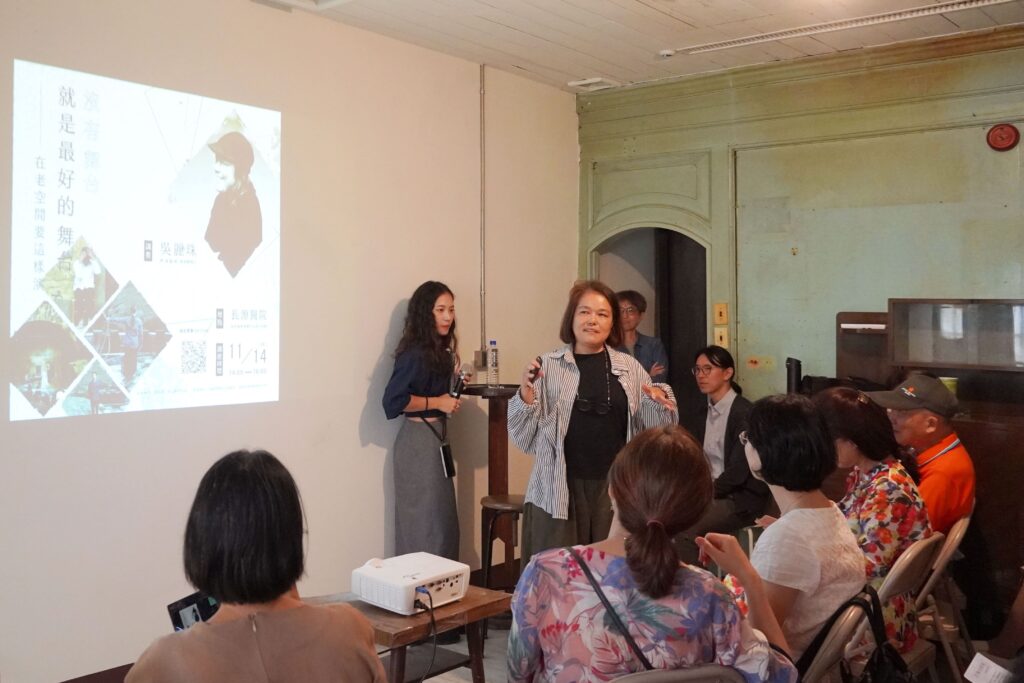
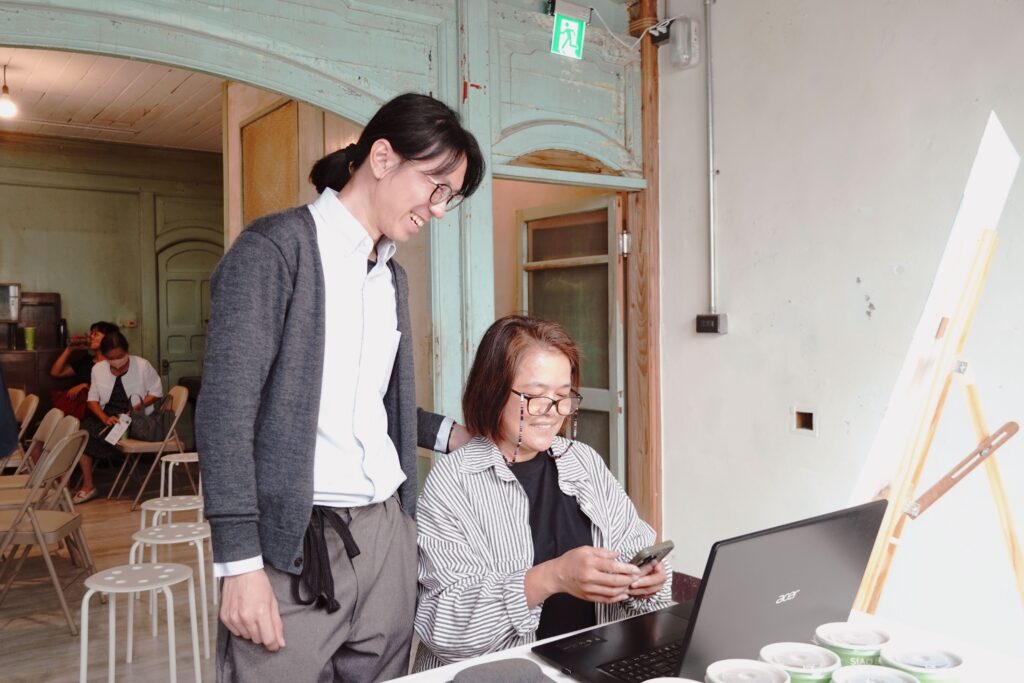
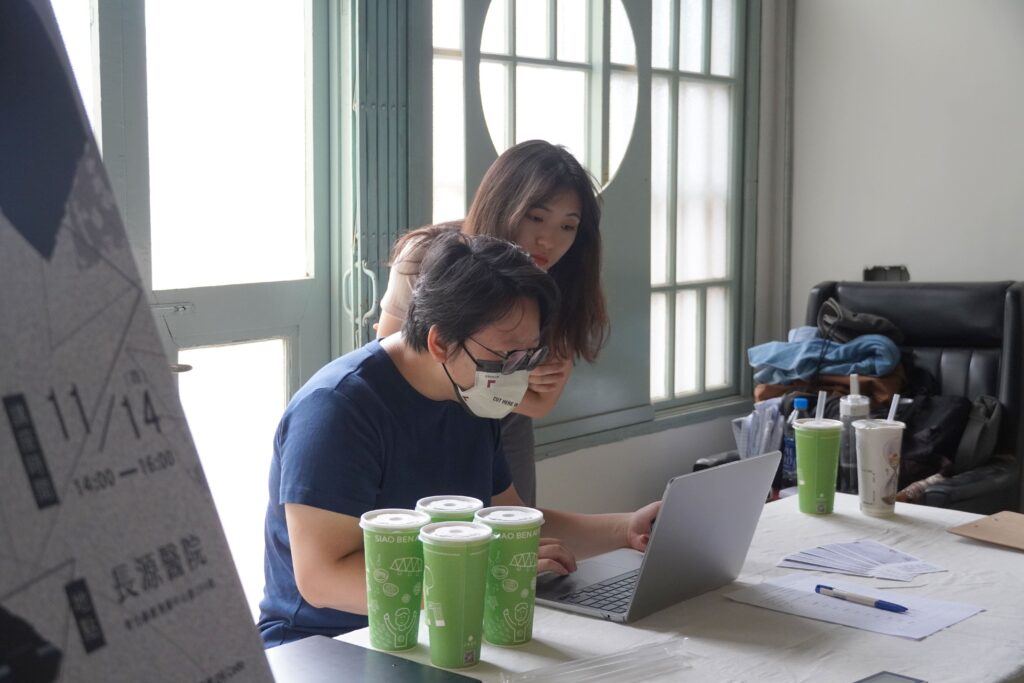
From Theater to Community
Setting up a stage in the middle of vast fields, with mist, mountains as natural backdrops, and golden waves of rice sprawling up to the horizon—the “Chishang Autumn Rice Harvest Arts Festival” held for many years in Taitung’s Chishang Township breaks the framework of traditional theater by bringing performing arts into rice fields during the harvest season. This distinctive stage format could only be realized through the ingenuity of the planning team. During her time at the Taiwan Good Foundation, Ms. Wu Li-Chu participated in implementing the arts festival, experiencing both the challenges and charms of integrating stage design with natural elements.
Ms. Wu Li-Chu pointed out that choosing to perform during the rice harvest period required not only renting space but also forming a consensus with farmers to plant early in the designated performance area and complete harvesting before the arts festival. The theater’s backdrop of endless rice fields was the result of coordination between the team and neighbors to ensure a complete visual effect during the two-day performance—it’s not hard to imagine that it was initially difficult to gain local residents’ approval for this arts festival, which affected farming.
From being rejected by residents to becoming an important activity that strengthens local identity, the transformation of the Chishang Autumn Harvest Rice Ear Arts Festival began in 2009: a photo of a piano performance was published in the international media TIME Magazine, presenting artistic performance against the familiar setting of rice field scenery to create unique yet familiar beauty. This echoes the speaker’s thoughts: “The stage performance is the achievement of artists’ years of training, but beyond the stage, I hope that artistic performances don’t exist solely for audiences, but for the community, for the space they occupy, and most importantly, to create something wonderful that everyone can participate in.”
Yuan Gu Creative Shop: Renewed from Within
Located on Heping Old Street in Daxi, Yuan Gu Creative Shop is a Han-style residence where the Ku family has lived for 80 years. The Western-style façade built after urban renovation extends into a deep courtyard. The mud walls blackened by early pastry-making fires and the old yet still elegant red brick arches all are characterized by a natural beauty that has settled with the passage of time. Ms. Wu Li-Chu, who was stationed in Daxi as part of the Taiwan Cultural Foundation’s “Northern International Light Spot” project, coincidentally formed a connection with Yuan Gu Creative Shop. Guided by the Ku family’s eager anticipation for restoring their old house, she developed an operational plan with fifth-generation owner Ku Cheng-chun, Ku’s mother Liao Yu-chao, Huang Jui-chen (fourth generation of Huang Jih-hsiang Tofu, later the person in charge of the Pin Hsiang Food Workshop), and fashion designer Wu Tai-yun, hoping to give new life to the old house from within through a series of arts and cultural events.
Beginning with the “Happiness Vessel Exhibition” in 2019, Ms. Wu Li-Chu applied her years of theater experience to the old house. While considering ways to transform a “residence” into an arts and cultural venue, she also tried to preserve the existing living atmosphere of the space as the main theme of the exhibition. The exhibition centered around Ms. Ku Cheng-chun’s collection of vessels and folk crafts from various countries, naturally displayed on tables, in corners, and along corridors throughout the house, presenting everyday folk aesthetics. Beyond the visual beauty, these exquisite vessels were also applied to showcase Ms. Huang Jui-chen’s culinary skills, allowing viewers to interact with the exhibits through taste, experiencing human warmth through the aroma of local ingredients.
At the opening press conference of the Happiness Vessel Exhibition, many elders from the Daxi area came to the Ku residence after receiving invitations from Ku’s mother, naturally creating an opportunity for local residents to gather. Although Yuan Gu Creative Shop’s operating budget is not as abundant as those of government departments or museums, and the exhibits may not be rare treasures, the value contained within has already transcended the exhibition itself, becoming a base for connecting local networks.
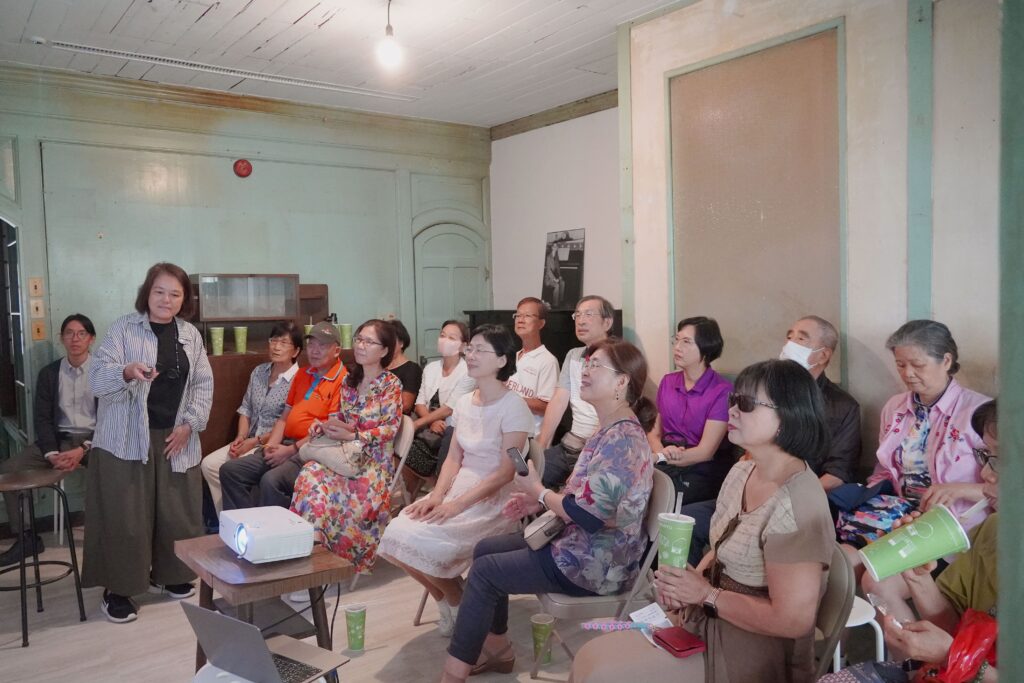
When Old Spaces Meet Performing Arts
The “Summer Audio-Visual Exhibition” in 2020 cleverly combined static vinyl records and restored old film exhibitions with dynamic concerts and puppet shows, providing rich and diverse cultural experiences. Mezzo-soprano Wang Yu-hsin’s melodious voice echoed in the not-so-spacious old house, resonating with the sealed years. The song “Song of the Seashore” brought tears to the eyes of Ms. Liao Yu-chao, who sat in the master’s seat for the first time after her husband’s passing. Classic songs like “Feng Fei Fei Suite” and “The Moon Represents My Heart” were part of the vocal performance, evoking memories of youth among the elderly in the audience. Additionally, a screen was temporarily set up on the façade of the old house, transforming Heping Old Street into an open-air cinema showing old films like “Return to Anping Harbor” and “May I Ask Your Name.” The intricate carvings on the gable wall and the stone pillars of the arcade formed an elegant frame for the films, while pedestrians passing between the projector and screen became the foreground, creating a unique artistic tension.
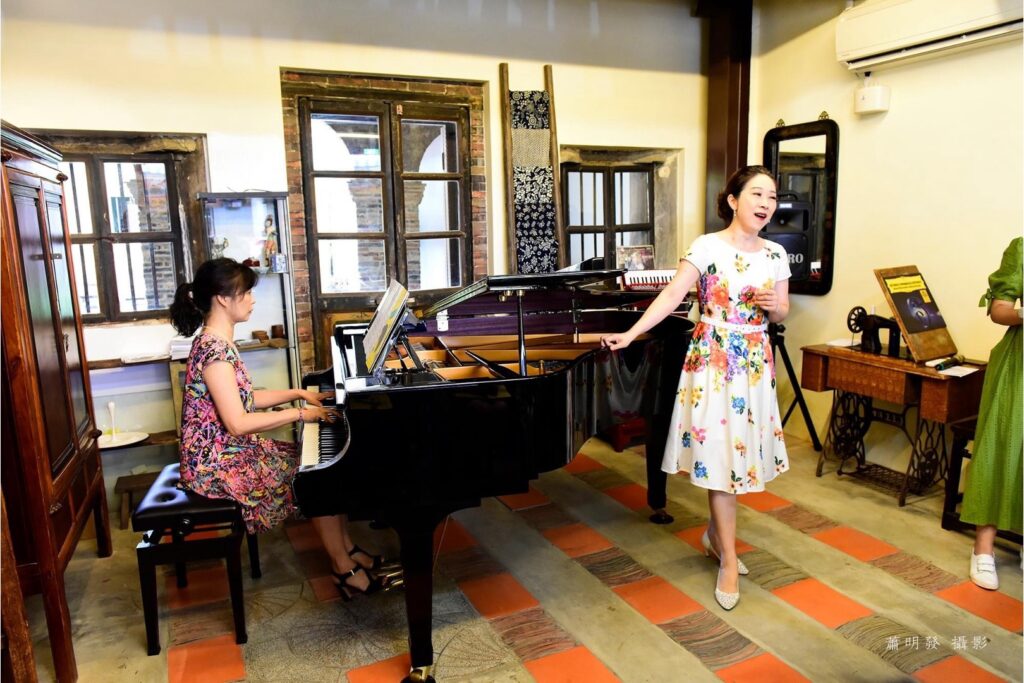
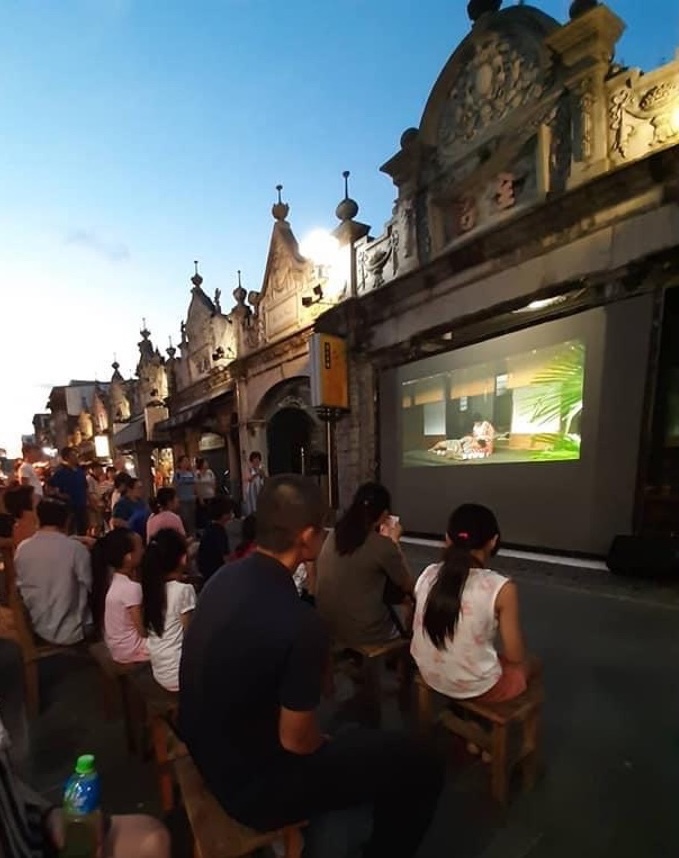
In the same year, the “Bamboo Art Week” featured bamboo crafts as the exhibition’s main theme, allowing the imagery of green bamboo to permeate throughout the ancient house. Yuan Gu Creative Shop invited Daxi artist Teacher Huang Che-fu to create a wall of bamboo-inspired ink paintings. The space was decorated with wildflowers and plants collected from the mountains. They also invited emerging choreographer Teacher Hsu Ting-wei to present his site-specific creation “Un, used.” Teacher Hsu Ting-wei danced gracefully to music adapted from traditional melodies by a three-person band, expressing the flexible and ethereal qualities of bamboo through body movements. Ms. Wu Li-chu observed that although many members of the audience were still unfamiliar with modern art at the time, they could nonetheless experience beauty through the interaction between the old house space and performing arts.
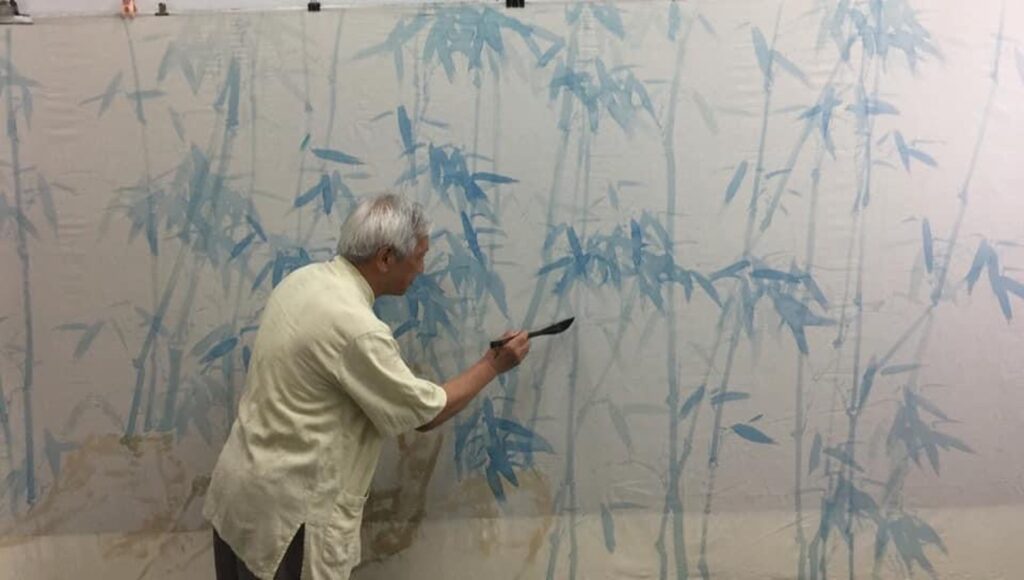
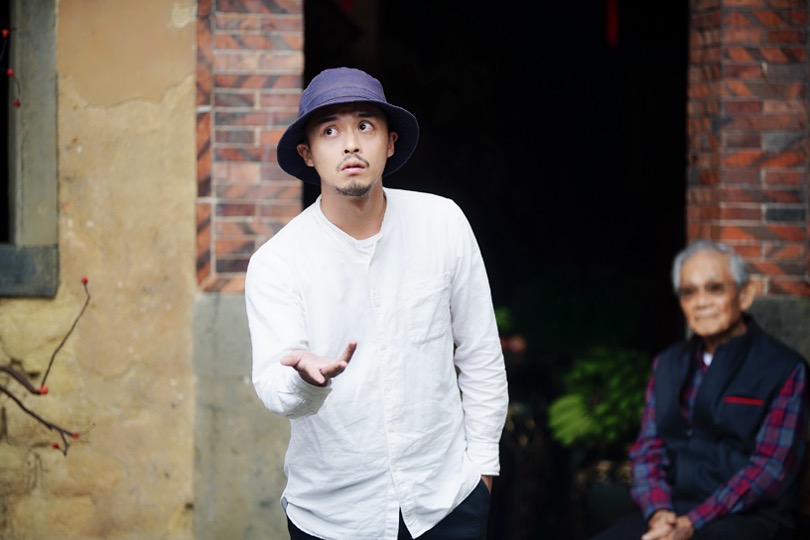
In 2021, the “Home Fashion – Clothing Biweekly Exhibition” opened the ancient family’s treasured old clothing chest, with exhibits including engagement dresses and pajamas handmade by Grandmother Liao Yu-chao sixty years ago, as well as pieces of antique clothing such as century-old traditional Chinese jackets made of xiangyunsha silk (fragrant cloud gauze) from ancestral generations. This further extended into the “Era Mix-and-Match – Ageless Craftsmen Glamorous Fashion Show” event, featuring national treasure-level woodcraft master Yu Li-hai, ink painter Huang Che-fu, dance educator Cho Yueh-yun, and ageless tailor Liao Yu-chao as models, with an average age over 80. The event showcased refreshing mixed styles such as grandmother’s pants paired with Japanese haori jackets and grandfather’s trousers matched with creative vintage pieces, injecting elderly vitality into the old house space. Additionally, the curatorial team invited puppet master Kuo Chien-fu from “Bu Er Puppet Theater” to perform an exquisite puppet show using the ancient house’s window frames and runway as backdrop, collaborating with Ms. Cho Yueh-yun’s granddaughter to present a novel experience of cross-generational artistic fusion.
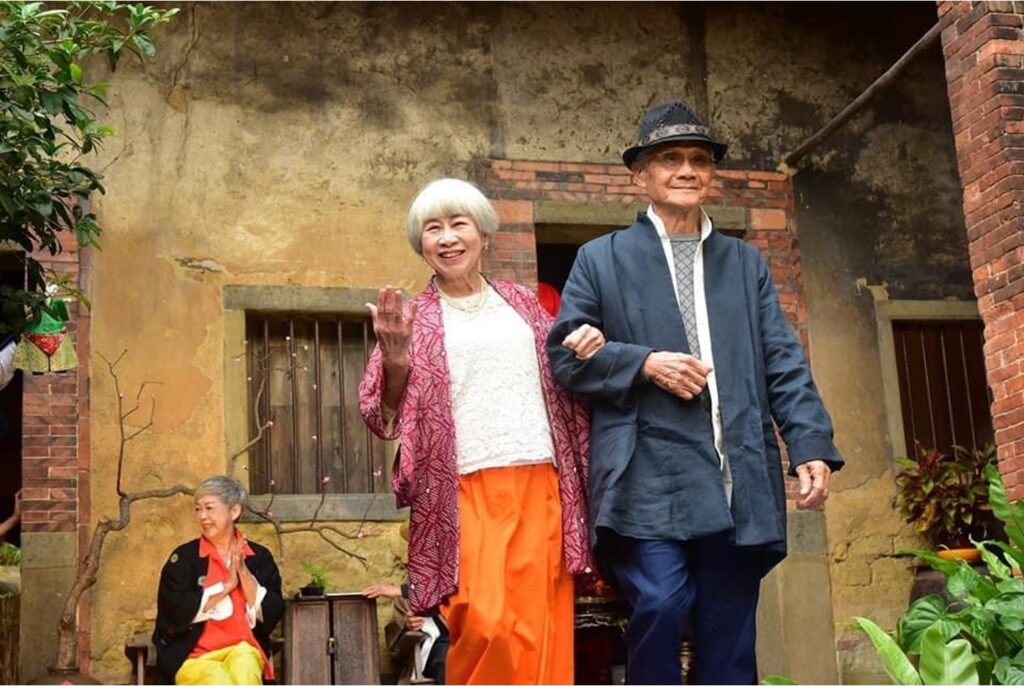
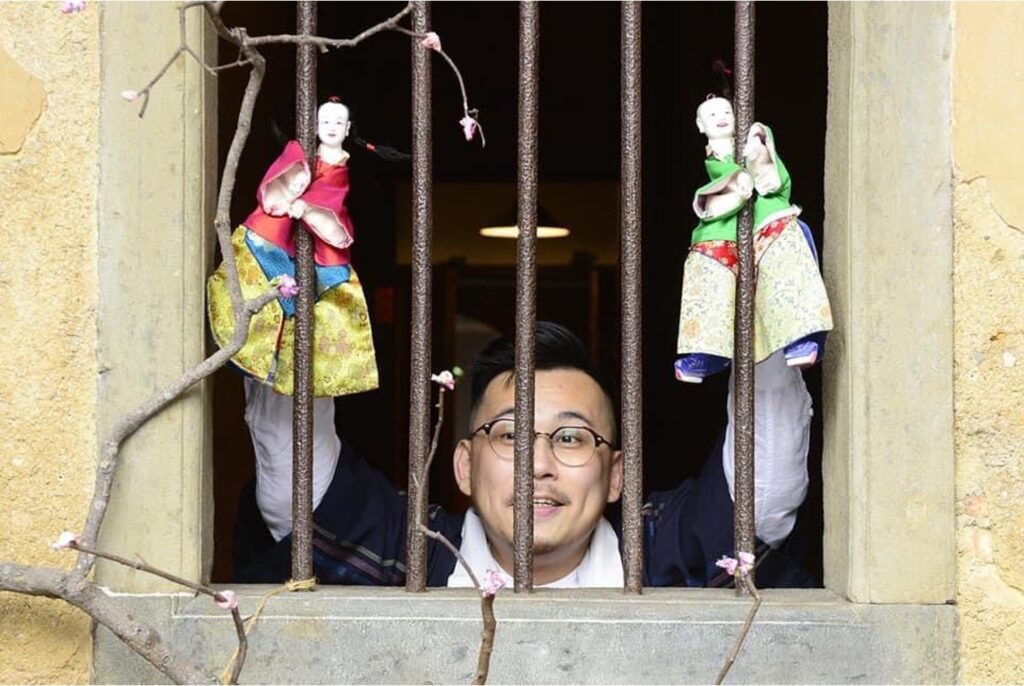
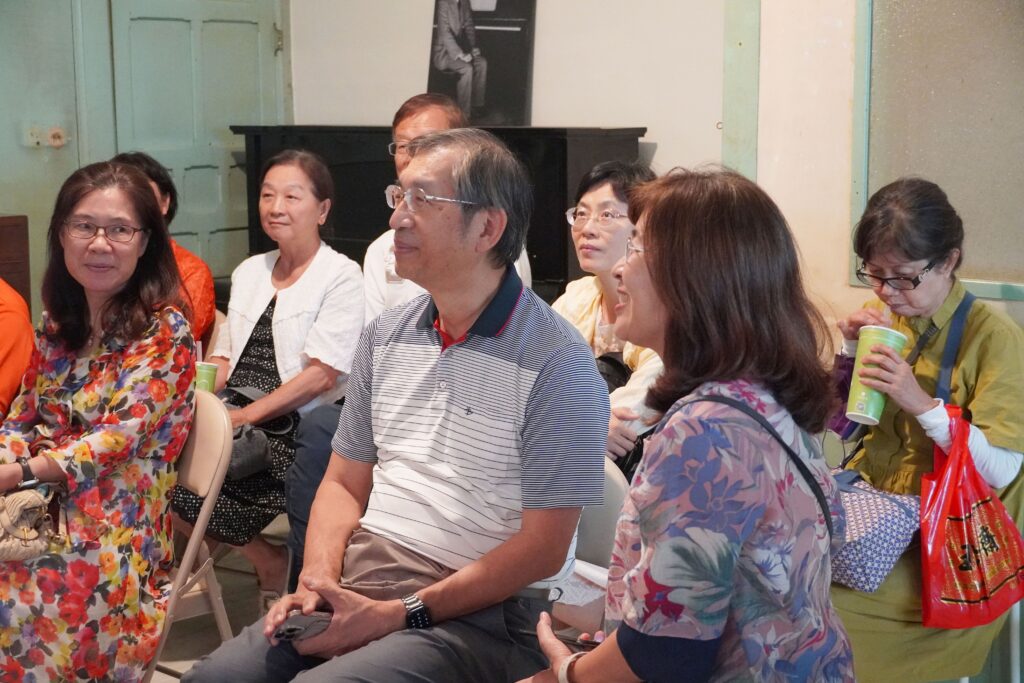
Years of carefully planned arts and cultural activities have not only made Yuan Gu Creative Shop an important cultural landmark in the Daxi area but also provided a model for the revitalization and regeneration of old buildings. At the end of the lecture, Ms. Wu Li-Chu concluded with this year’s ‘Festival・Daily Life’ special exhibition’s core concept of ‘Returning to the Original Place,’ discussing how arts and cultural activities in old houses should focus on remembering the space and the people who lived there, returning to the essence of historical landscapes and memories.
Another old house space, Chang-Yuan Hospital invited Ms. Wu Li-Chu to serve as stage consultant for its 2023 restoration completion ceremony. The bright red chairs used as seating for the small-scale audience were specially selected to create a festive, reunion atmosphere to welcome the rarely gathered Hsu family members ‘home.’ When the rebirth of old houses is no longer limited to hardware repairs or reuse, but becomes people-centered, reviving the interaction between spaces and local residents, the buildings truly become carriers of memories, emotions, and stories.
